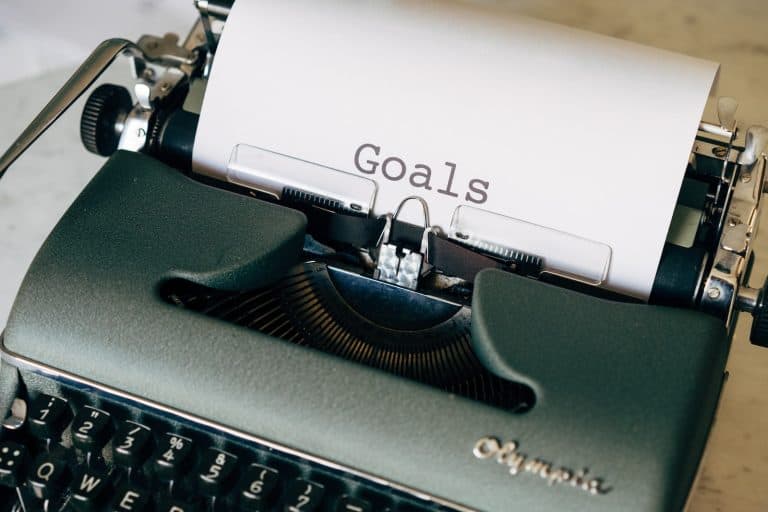Habits and goals are something that we all have, big or small, things we want to accomplish in a certain amount of time. Perhaps you hope to earn $1 million by the age of 30. Or start losing weight before summer arrives. Or finish writing a book in the next six months. We often begin by creating a physical objective when we have an intangible goal (such as lose weight, success, wealth, health, or happiness).
Habits are like algorithms that run in the background and control our lives. Good habits help us achieve our goals more effectively and efficiently. Bad ones make things harder or prevent success entirely. Habits have a great deal of influence over our automatic behavior.
Habits and Goals: Differences
The difference between habit and goal is not a question of semantics. Each requires a different set of activities. Let’s assume you want to read more books at the end of the year. You might establish a goal to read 50 books, or you could develop a habit and commit to always having a book with you.

Habits and Goals: The Problems With Goals
Let’s take a look at the issues with only having objectives. Goals have an end point, to begin with. This is why many people revert to their former state after attaining a particular objective. Runners finish marathons and then abandon all forms of activity. Or they achieve a financial goal, only to go broke shortly thereafter. Others reach a weight loss objective to be in better shape but then ruin their success by eating excessively after achieving it.
Habits are important because they can be continued indefinitely. Goals, on the other hand, rely on factors that we might not always have control over, can change behavior or might require less effort afterward. It’s a fact that reaching a goal is not always possible—injuries, unexpected expenses, and family issues can all get in the way.
We’re attempting to change a heuristic process into an algorithmic one when we set a goal. Habits are more effective algorithms than new habit, and as a result, they are more dependable in terms of getting us where we want to be.
When it comes to goals, a crucial issue is that we have to expend a lot of intellectual resources trying to figure out which actions or new behavior will lead us closer to achieving the goal. With habits, on the other hand, we don’t have put in nearly as much effort because we already know what needs to be done.
When we have additional responsibilities in other areas of our lives, it can be easy to put off working towards our goals. For example, saving money requires us to be disciplined with every purchase whereas the habit of putting $50 into a savings account each week is simpler as an action.
Habits, not objectives, make otherwise difficult activities simple. Finally, goals might lead us to become complacent or dangerous.
Our brains can often confuse goal setting with achievement because, to our brain, simply stating the goal feels like we’ve accomplished it. This happens more frequently when people announce their goals to others. In addition, if our goals are unrealistic, this can lead to reckless or unethical behavior as we make sacrifices in order to meet the objective we stated.
Habits and Goals: The Benefits of Habits
Forming habits allows us to automate difficult tasks so that they become easy in practice. By taking small, incremental steps, we can achieve our goals with ease.
The saying goes that the way to eat an elephant is one bite at a time. The benefits of taking a systematic approach to life include having good habits so we are more likely to reach our goals.
Consider a person who wants to write a book. They determine that they will write 500 words every day, so it will take 200 days to complete the novel. Writing 500 words on most days does not need much effort provided that the topic is interesting and the writer has some knowledge of it. On some occasions, though, taking that little step might result in them writing 1000 or more words. As a consequence, they are able to finish the book considerably faster than anticipated.
Setting “write a book in four months” as a goal, on the other hand, would have been daunting because of the final word count alone. It’s simple to fulfill habits.
Did you know that after forming a habit, our brains physically change to make the behavior simpler to finish? For example, if we drink water first thing every morning for 30 days straight, it becomes easier to do than not do. Even larger habits can become automated over time with enough practice.
Duhigg’s research suggests that our lives are made up of habits, many of which we barely even notice. In fact, these small actions make up 40% of our waking hours. Over time, they add up to create our identity.
Duhigg explains these behaviors as ‘keystone habits.’ These are patterns that lead people to adjust other areas of their lives. As an example, individuals who begin working out daily may also see improvement in eating habits and drinking less alcohol. In other words, those who give up a harmful habit might unintentionally start practicing a positive one instead.
Habits can be as minimal as required. The advice given to those attempting to establish a habit is to start small. If you want to read more, you may begin with 25 pages each day. Once your little routines are established, the degree of complexity may be raised.
Habits and Goals: Systematic Approach
We can make continuous improvement a way of life by shifting our attention from attaining specific objectives to developing good long-term habits, actionable ideas. We’re even if we occasionally deviate from the path that can lead to the right direction.
To acquire the knowledge required for his investment judgments, successful people like Warren Buffett reads all day. Stephen King produces 1000 words a day, 365 days a year (a habit he refers to as “a form of creative sleep”). Olympic runner Eliud Kipchoge takes notes after each training session to identify areas where he can improve.
These habits that we repeat hundreds of times over the years are not incidental; they are essential for our success. With consistency, the benefits of taking these actions multiplies and leads to extraordinary achievements. Goals may rely on extrinsic motivation, but once habits are formed, they become automatic. Habits literally rewire our brains. Rather than focusing on a particular goal while attempting to succeed in our lives, we should spend our time developing positive habits.
Habits and Goals- Bottom Line
Habits and goals go hand-in-hand. Our new habits become our goals. They are the actions we take on a regular basis that make us who we are. If we want to change our lives, we need to change our old habits and make them positive long-term habits. By focusing on habits that promote well-being and happiness, you can start to see meaningful changes in your life.
The best way to do this is to start small, practice self-discipline, and avoid bad habits. Once you have developed a few good habits, they will lead you to develop more. Over time, these habits will become automatic, and you will find yourself achieving things you never thought possible. Embracing the concept that happiness comes from within can be a powerful motivator in this journey.
So let’s focus on developing good habits and let the goals take care of themselves. Incorporating practices like gratitude into your daily routine can greatly enhance your overall outlook and reinforce positive habits. Understanding how gratitude affects the brain can provide additional insights into its benefits.
Additionally, keeping a gratitude journal can help you maintain focus on positive aspects of your life and support the development of long-lasting good habits. Remember, you create your own happiness, and focusing on these positive habits will naturally lead to achieving your goals.

